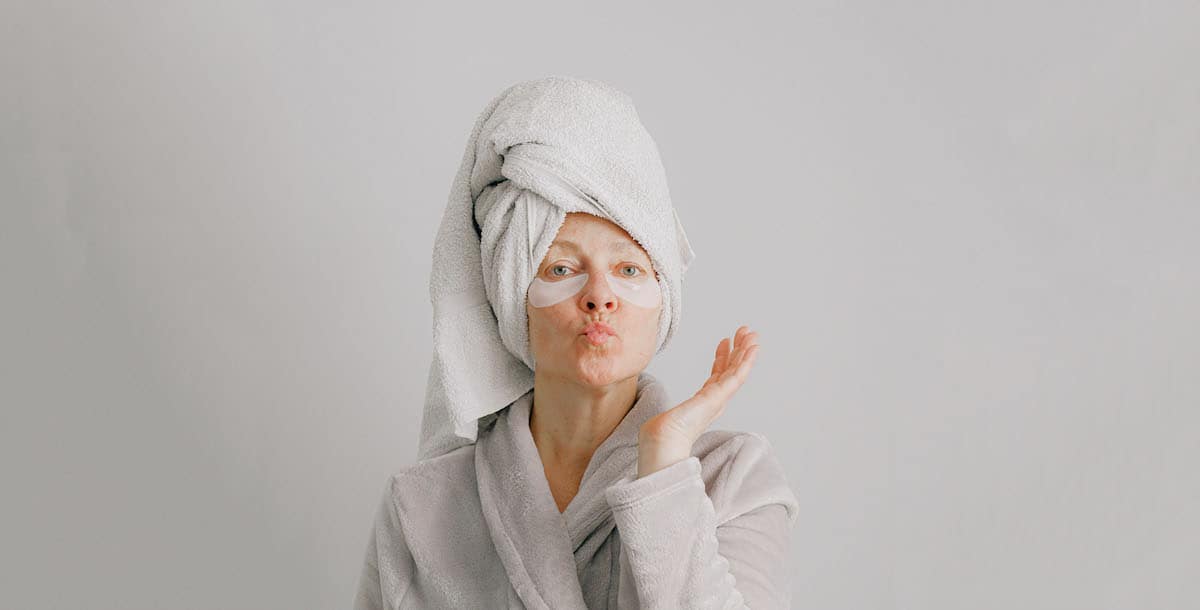Home > Female Body > Menstrual cycle > How to stop your menstrual cycle messing with your glow


When you have finally curated your skin routine after researching and listening to all the advice. You now know your skin type and can finally have a healthy friendship with your skin. Then, during certain times in your menstrual cycle, just before your period starts, will tend to put a different set of strains on this already new friendship.
Within a matter of 28-days, the average length of a woman’s menstrual cycle, our complexion can change in a matter of minutes. Drastically different each day from unpleasant shine and oily one day to dry and flaky another day. Then there are the breakouts that are not just reserved for the teenage years. Period skin is not constrained to only the days leading up to and during your period.
But our skin does try to warn us when the tide is about to change. There are heads up or warning signs when our skin does these drastic changes that when better understood, we can be armed and ready to fight. It is time to stop your period from messing with your glow and it starts with knowing where you are in your menstrual cycle.
During this phase, your skin is at its most cooperative, because as the research puts it done to the fact that your estrogen levels are at their highest. When your estrogen is at its highest your skin receives more collagen, sebum production is normalised, is moisturised to the required amount and at its brightest.
Now is the time to stick to the full works of your skincare and even the minimal effort with your skincare as it can handle it while loving the energy. Use your vitamin C serums, nightly retinoids and AHAs, of course in the required order as instructed by your favourite skincare brand.
Even if your skin is usually on the drier side in the Luteal phase, it will become oily thanks to the decrease of estrogen levels and increase in progesterone levels. Research says progesterone is responsible for your sebaceous glands producing more sebum which makes you oily. Whether your skin is of the drier skin type, oily or combination skin type, you will be battling against blocked skin meaning spots or an increase in period acne.
Time to use your skincare defence against increased oily skin and spots; clay face masks, gentle exfoliators, gentle cleaners and lighter moisturisers or oils.
We all have that friend who is so intuitive she will know exactly when her period is about to begin and even predict if it is going to rain or pour. There is a lot you can learn from her because this way you can be prepared for the drastic change in your hormones. Yes, it is that dramatic, the decline in your estrogen and progesterone levels. We all understand this as period related skin. Which means, lack lustered, dull, sensitive, irritated and dry skin of varying degrees.
Soothing ingredients like chamomile, Aloe Vera, cucumber and honey, to name a few. And, staying hydrated.
It should go without saying but remember to protect your skin during every phase, with sunscreen if you will only be leaving the house today for a walk. We hope you have a few soothing self-care items to for those period cramps.

-


Dr Singh is the Medical Director of the Indiana Sleep Center. His research and clinical practice focuses on the myriad of sleep.

Understanding the female libido Before we can answer, “Does progesterone increase sex drive?” it’s important to gain a better understanding of what a “sex drive” means. The female libido or sex drive is how much you desire sexual activity. Every

Why am I so hungry before my period? Women who experience an increased appetite before period starts can feel frustrated that they’re craving foods they don’t normally eat. You may be wondering, “Why do I eat so much before my

Understanding cycle syncing workouts Did you know that evidence shows a link between the impact of exercise and menstrual cycle phases in women? It’s true. Women are at a higher risk of foot and ankle injury during workouts than men,
Hormona© 2025, All Rights Reserved
| Cookie | Duration | Description |
|---|---|---|
| cookielawinfo-checkbox-analytics | 11 months | This cookie is set by GDPR Cookie Consent plugin. The cookie is used to store the user consent for the cookies in the category "Analytics". |
| cookielawinfo-checkbox-functional | 11 months | The cookie is set by GDPR cookie consent to record the user consent for the cookies in the category "Functional". |
| cookielawinfo-checkbox-necessary | 11 months | This cookie is set by GDPR Cookie Consent plugin. The cookies is used to store the user consent for the cookies in the category "Necessary". |
| cookielawinfo-checkbox-others | 11 months | This cookie is set by GDPR Cookie Consent plugin. The cookie is used to store the user consent for the cookies in the category "Other. |
| cookielawinfo-checkbox-performance | 11 months | This cookie is set by GDPR Cookie Consent plugin. The cookie is used to store the user consent for the cookies in the category "Performance". |
| viewed_cookie_policy | 11 months | The cookie is set by the GDPR Cookie Consent plugin and is used to store whether or not user has consented to the use of cookies. It does not store any personal data. |
